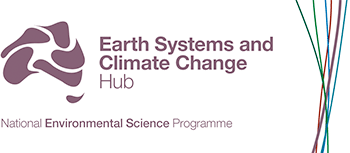An introduction to the Intergovernmental Panel on Climate Change
The Intergovernmental Panel on Climate Change (IPCC) is the United Nations body for assessing the science related to climate change. The IPCC was established in 1988 to provide the world with a clear scientific view on the current state of knowledge on climate change and its potential environmental and socio-economic impacts. As an intergovernmental body, the IPCC is open to all member countries of the United Nations (UN) and the World Meteorological Organisation (WMO); currently the IPCC has 195 member countries.
The IPCC reviews the most recent scientific, technical and socio-economic research produced worldwide relevant to the understanding of climate change. The IPCC does not undertake new research, but examines published and peer-reviewed literature to develop a comprehensive assessment of scientific understanding which is published in IPCC Assessment Reports. The assessments are policy-relevant but not policy-prescriptive: they may present projections of future climate change based on different scenarios and the risks that climate change poses and discuss the implications of response options, but they do not tell policymakers what actions to take.
The IPCC Assessment Reports are comprised of three working group reports:
- Working Group I: the Physical Science Basis
- Working Group II: Impacts, Adaptation, and Vulnerability
- Working Group III: Mitigation of Climate Change
IPCC Sixth Assessment Report
The IPCC is currently in its Sixth Assessment cycle. During this cycle, the Panel is producing three Special Reports, a Methodology Report on national greenhouse gas inventories and the Sixth Assessment Report (AR6). The three volumes of the Sixth Assessment Report and its Synthesis Report are due for release between 2021 and 2022.
The importance of Assessment Reports and work involved in their development
The IPCC Assessment Reports have historically provided a valuable input into domestic and international climate policy. The AR6 will play an even more important role – providing a key input into the first Global Stocktake of the Paris Agreement’s implementation to assess the collective progress towards achieving the Agreement’s purpose and long-term goals.
All IPCC reports undergo two stages of review. A First Order Draft is reviewed by experts. Following the expert review, authors develop a Second Order Draft based on the comments received. This draft then undergoes a second review by both governments and experts. Authors will prepare a Final Draft based on the comments received during the second review. The Final Draft is distributed to governments at the time of the final government review of the Summary for Policymakers.
The First Order Draft of the Working Group I contribution to AR6 has undergone an expert review (29 April – 23 June 2019).
The Second Order Draft of the Working Group I report is currently in the government and expert review stage, which is open from 2 March to 26 April 2020.
The Working Group I contribution to the Sixth Assessment Report will be finalised in 2021. The Chapter outline of the Working Group I report can be found here.
More information about the IPCC AR6 Working Group I report can be found here.
The Department of Industry, Science, Energy and Resources is the National Focal Point for IPCC activities in Australia and is managing the government review process. For more information about the government review, please contact IPCCFocalPoint@industry.gov.au.
To assist potential government reviewers understand the key science topics and issues that may be covered in the Working Group I report of AR6, science briefing videos from three authors of this report are provided below.
Watch the science video briefings
Observed and projected changes in Australian and global climate, Professor David Karoly
Historical, current and future greenhouse gas emission trends and budgets, Dr Pep Canadell
Global and Australian climate extremes, Dr Sophie Lewis
About the presenters
Professor David Karoly – Leader of the Earth Systems and Climate Change Hub, National Environmental Science Program, Honorary Professor, School of Earth Sciences University of Melbourne and IPCC Review Editor AR6 Working Group I.
Dr Pep Canadell – Senior Principal Research Scientist at the CSIRO Climate Science Centre Executive Director Global Carbon Project and IPCC Coordinating Lead Author AR6 Working Group I.
Dr Sophie Lewis – UNSW Canberra climate researcher, ACT Scientist of the Year 2019 and IPCC Lead Author AR6 Working Group I.

